Physical Address
304 North Cardinal St.
Dorchester Center, MA 02124
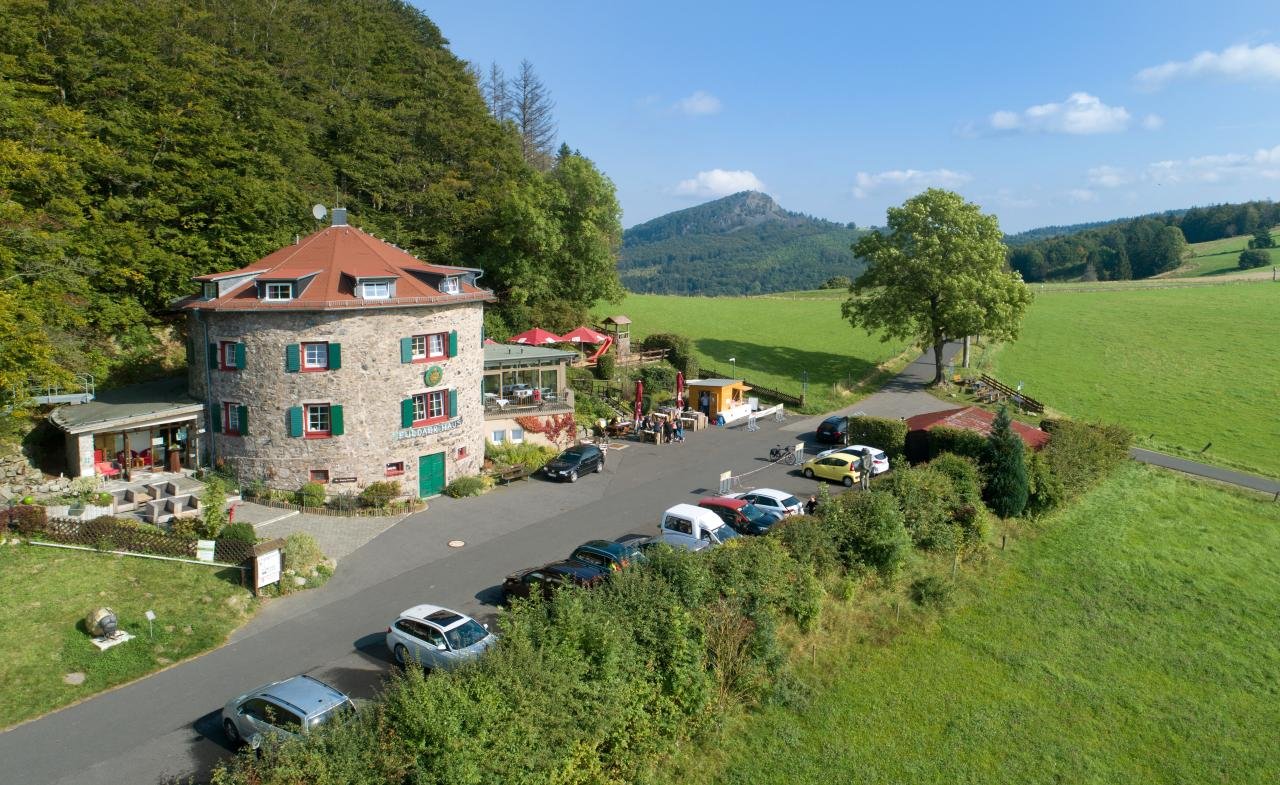
Green Hotels in Europe- Your Ultimate Guide to Eco-Friendly Accommodations and Sustainable Travel
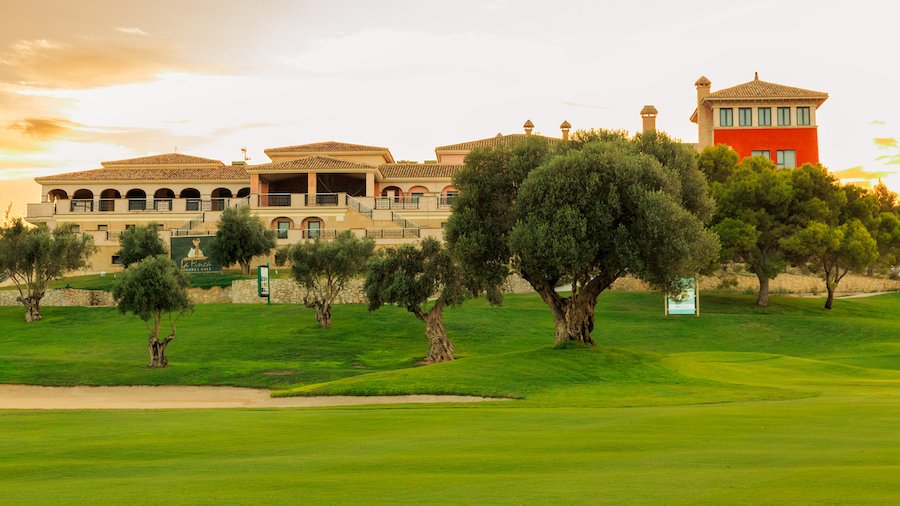
Discover Europe’s best green hotels
Meta Description: Discover Europe’s best green hotels offering eco-friendly accommodations. Find cheap flights and budget-friendly hotels while supporting sustainable tourism across the continent.
Have you ever wondered if it’s possible to explore Europe’s breathtaking landscapes while leaving barely a footprint behind? I remember standing in the lobby of a converted monastery in Portugal, watching rainwater being collected through ancient stone channels, and thinking: this is exactly how travel should feel. That moment sparked my journey into discovering Europe’s most remarkable green hotels, where environmental consciousness meets unforgettable experiences.
Green hotels in Europe represent more than just accommodation, they’re gateways to a new way of traveling. These environmentally conscious properties combine comfort with sustainability, offering travelers cheap flights and budget-friendly hotels options that don’t compromise on values or experiences. From solar-powered retreats in the Swiss Alps to organic farm stays in Tuscany, Europe’s eco-friendly accommodations are redefining what it means to travel responsibly.
Walking through Copenhagen’s eco-districts or cycling past Amsterdam’s green-roofed buildings, you can feel Europe’s commitment to sustainability in every breath of clean air. The continent has become a pioneer in sustainable tourism, with over 15,000 certified green accommodations spanning from Iceland’s geothermal-powered lodges to Greece’s solar-powered island retreats.
What makes a hotel truly “green”? It’s more than just changing towels every other day. These properties harness renewable energy, source food locally, manage waste responsibly, and often contribute directly to local conservation efforts. The best part? Many of these undiscovered gems offer rates that rival conventional hotels, making sustainable travel accessible to every budget.
European green hotels typically reduce energy consumption by 30-40% compared to traditional accommodations. They achieve this through innovative technologies like geothermal heating in Iceland, solar panels across Mediterranean properties, and advanced water recycling systems throughout Scandinavia. These aren’t just feel-good measures, they’re practical solutions that often translate to lower operational costs and, consequently, more competitive room rates for travelers.
Nothing quite prepares you for waking up in a glass igloo in Finnish Lapland, watching the Northern Lights dance overhead while knowing your accommodation runs entirely on renewable energy. Scandinavia has elevated sustainable hospitality to an art form, creating unexplored paradises that feel like dreams yet remain surprisingly affordable.

Finland’s Forest Retreats
Finland‘s sustainable accommodations range from treehouse hotels in Lapland to converted lighthouses along the Baltic coast. The country’s commitment to carbon neutrality by 2035 has inspired hoteliers to innovate continuously. Properties like Kakslauttanen Arctic Resort offer glass igloos heated by renewable energy sources, with nightly rates starting from €200 during peak season and dropping to €120 in shoulder periods.
Getting There: Book connecting flights through Helsinki, where efficient public transport links directly to sustainable accommodation hubs. Many hotels offer carbon-offset transfers or encourage guests to use Finland’s excellent train network.
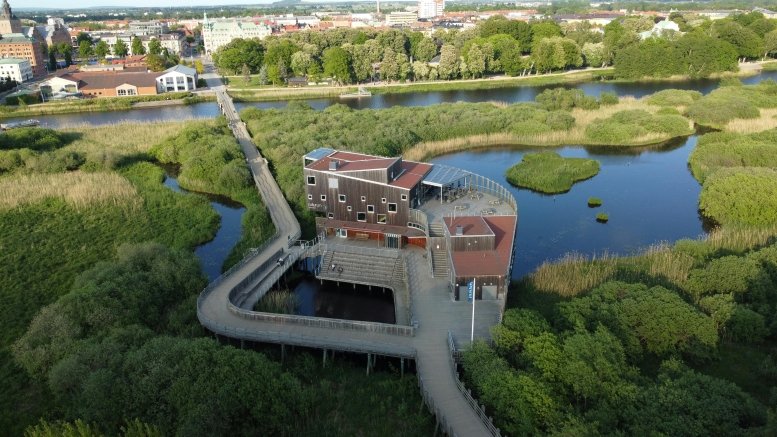
Sweden’s Urban Green Escapes
Stockholm’s floating hotels and Gothenburg’s converted prison accommodations showcase Sweden‘s creative approach to sustainable tourism. The Långholmen Hotel, a former prison turned eco-friendly accommodation, demonstrates how historical preservation and environmental consciousness can create unique travel experiences. Rates average €90-150 per night, making it accessible for family vacation ideas without breaking the bank.
For more detailed information about Planning Travel Trips to Scandinavia, consider the seasonal variations and booking strategies that can significantly reduce costs while maximizing your sustainable travel impact.
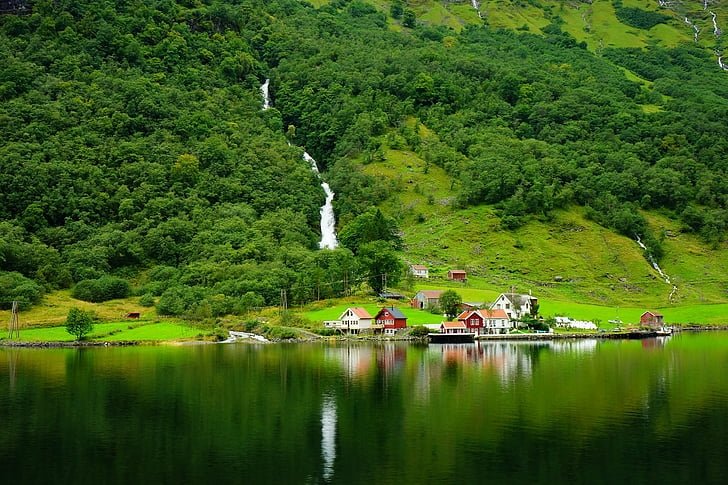
Norway’s Fjord Eco-Lodges
Norwegian fjord regions offer some of Europe’s most spectacular locally loved spots for sustainable accommodation. Properties like Storfjord Hotel use hydroelectric power and local materials, creating harmony between luxury and environmental responsibility. While Norway can be expensive, choosing eco-lodges often provides better value through included sustainable meals and activities.
The Mediterranean’s approach to green hospitality feels different, warmer somehow. Perhaps it’s the way olive groves surround organic farm stays in Tuscany, or how Greek island hotels harness endless sunshine through solar installations. These southern European destinations prove that sustainability and affordability can coexist beautifully.
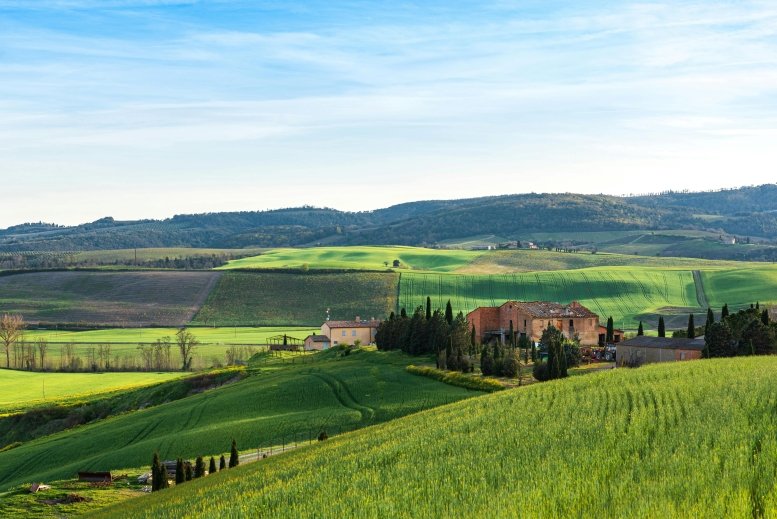
Tuscany’s countryside hosts hundreds of certified organic farms offering accommodation
Tuscany’s countryside hosts hundreds of certified organic farms offering accommodation, creating authentic Cultural Experiences while supporting local agriculture. These agriturismos typically charge €60-120 per night and include breakfast featuring their own organic produce. The experience goes beyond accommodation, you’re participating in sustainable agriculture and traditional Italian lifestyle.
Practical Tip: Book agriturismo stays directly with properties to avoid commission fees and often receive complimentary cooking classes or wine tastings. Many offer weekly rates that provide substantial savings for longer stays.
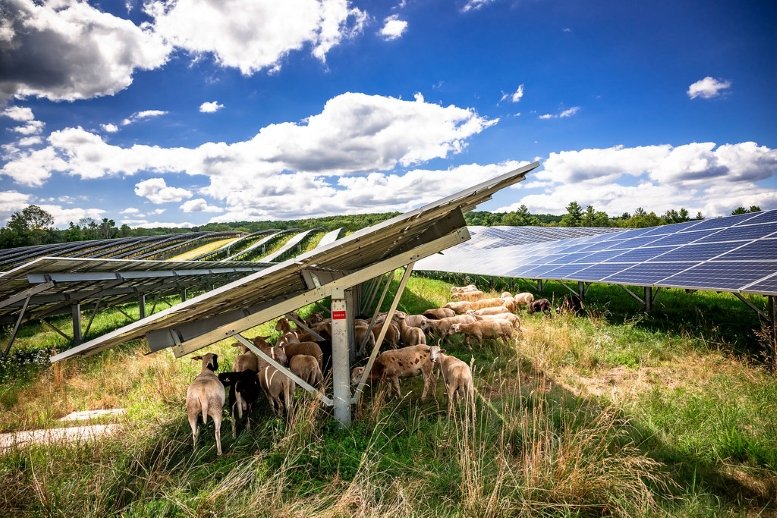
Greek Island Solar Sanctuaries
Greece’s island hotels increasingly rely on solar power and seawater desalination, creating self-sufficient micro-ecosystems. Santorini’s cliff-side eco-hotels and Crete’s rural retreats demonstrate how traditional architecture can incorporate modern sustainable technologies. Expect to pay €80-180 per night, with many properties offering early booking discounts of up to 25%.
The Greek islands provide excellent opportunities for exploring Hidden Gems while maintaining environmental consciousness. Island-hopping using local ferries, staying in solar-powered accommodations, and eating at family-run tavernas creates minimal environmental impact while maximizing cultural immersion.

hotels powered entirely by wind energy and properties that grow their own organic food.
Spain’s green hotel scene spans from Barcelona’s urban eco-hotels to Andalusia’s rural sustainable retreats. The country’s commitment to renewable energy has inspired innovative accommodation concepts, including hotels powered entirely by wind energy and properties that grow their own organic food.
Andalusian eco-fincas offer rates from €50-100 per night and often include horseback riding, organic farming participation, and traditional craft workshops. These experiences create lasting memories while supporting local communities and sustainable practices.
Central Europe’s approach to sustainable hospitality reflects the region’s deep connection to nature and tradition. From Austria’s alpine eco-lodges to Czech Republic’s converted castle accommodations, this region offers unique sustainable travel experiences that honor both environmental and cultural heritage.
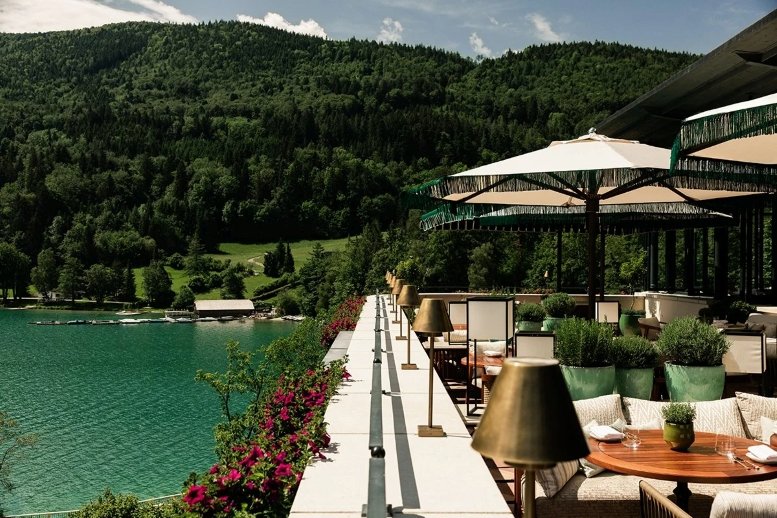
Austria’s alpine eco-lodges
Austrian alpine regions host numerous eco-certified hotels that harness mountain streams for hydroelectric power and use local wood for heating. Properties like Vigilius Mountain Resort in South Tyrol operate car-free and provide electric shuttle services, creating peaceful environments that enhance both relaxation and environmental consciousness.
Budget Strategy: Austrian eco-hotels often offer “green packages” that include regional train passes, organic meals, and guided nature walks for €150-250 per person per day, providing excellent value for comprehensive sustainable experiences.
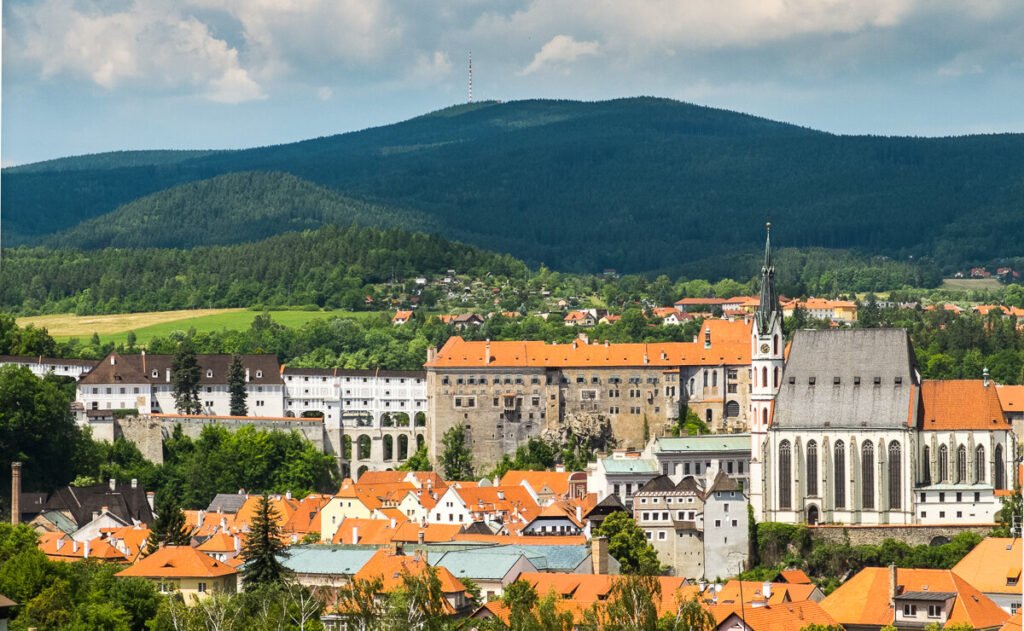
Prague and surrounding regions feature converted castles and monasteries operating as sustainable accommodations. These properties preserve historical architecture while incorporating modern environmental technologies. Chateau Mcely, for example, combines 18th-century elegance with contemporary sustainability practices, offering rates from €180-300 per night.
For travelers interested in Historical Wonders, Czech Republic’s sustainable heritage accommodations provide unique opportunities to experience history while supporting conservation efforts.
Western Europe’s established economies have enabled extensive investment in sustainable hospitality infrastructure. Countries like Netherlands, Belgium, and Switzerland lead innovation in eco-friendly accommodation, creating models that other regions increasingly adopt.
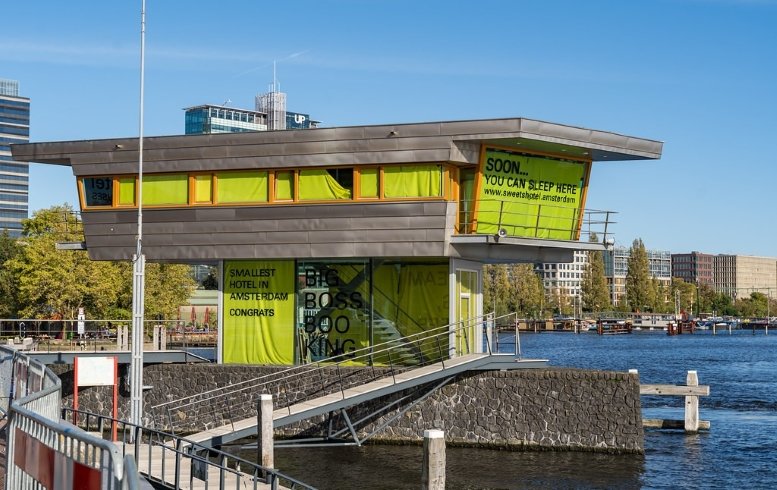
Dutch sustainability innovations extend far beyond Amsterdam’s famous bike culture. The country hosts floating hotels, converted shipping container accommodations, and properties built entirely from recycled materials. The Conscious Hotel chain operates multiple Amsterdam locations using renewable energy, organic linens, and zero-waste policies, with rates averaging €90-150 per night.
Transportation Tip: Netherlands’ excellent train network connects seamlessly with most green accommodations, eliminating the need for rental cars and reducing overall travel environmental impact.

Whitepod eco-luxury camp
Swiss alpine regions set global standards for sustainable mountain tourism. Properties like Whitepod eco-luxury camp in Valais demonstrate how temporary structures can provide luxury experiences with minimal environmental impact. Despite Switzerland’s high costs, many eco-accommodations offer package deals that include meals, activities, and transport for €200-400 per person daily.
Sustainable travel doesn’t require substantial budgets when approached strategically. My years of exploring Europe’s green accommodations have revealed numerous money-saving techniques that environmentally conscious travelers can employ without compromising their values or experiences.
Green hotels often offer their best rates during shoulder seasons when energy demands are lower and local produce is most abundant. Traveling to Mediterranean destinations in May or October, or visiting Nordic countries during late spring or early autumn, can reduce accommodation costs by 30-50% while providing optimal weather for outdoor activities.
Many sustainable accommodations offer comprehensive packages including meals, activities, and transportation. These packages often provide better value than booking components separately, while ensuring all elements maintain environmental standards. Farm stays in Tuscany, for example, frequently include cooking classes, wine tastings, and guided nature walks for €100-150 per person daily.
Green hotels actively encourage longer stays and group bookings to reduce operational impacts. Weekly rates often provide 15-20% savings compared to nightly bookings, while group bookings for family vacation ideas can secure additional discounts and exclusive sustainable experiences.
For comprehensive guidance on Family Trip Planning with sustainable accommodations, consider properties that offer educational programs about environmental conservation, organic farming, or renewable energy systems.
Sustainable travel extends beyond choosing green accommodations to embrace responsible cultural interaction. Understanding local customs, supporting community initiatives, and respecting natural environments creates more meaningful travel experiences while contributing positively to destinations.
Green hotels typically source products locally, creating direct economic benefits for surrounding communities. Guests can extend this impact by shopping at local markets, eating at family-run restaurants, and participating in community-based activities. These choices often cost less than tourist-focused alternatives while providing more authentic experiences.
Different European regions have varying environmental priorities. Mediterranean destinations focus on water conservation, while Nordic countries emphasize energy efficiency. Understanding these priorities helps travelers make appropriate choices and demonstrate respect for local environmental challenges.
Learning basic environmental vocabulary in local languages shows respect for sustainability efforts. Phrases like “organico” in Italian, “biologisch” in German, or “ekologisk” in Swedish help identify sustainable options and communicate environmental consciousness to local providers.
European green hotels adapt their operations seasonally, creating opportunities for travelers to experience different aspects of sustainability throughout the year. Understanding these seasonal variations helps optimize both environmental impact and travel budgets.
Spring offers exceptional opportunities for sustainable travel as properties transition from winter conservation modes to active growing seasons. Organic gardens begin producing, renewable energy systems operate at peak efficiency, and wildlife observation opportunities abound. Rates typically range 20-30% below peak season while weather remains comfortable for outdoor activities.
Summer provides the full green hotel experience, with organic gardens at peak production, maximum solar energy generation, and extensive outdoor activity programs. While rates are highest, the comprehensive sustainable experiences often provide better value than conventional accommodations during the same period.
Autumn offers unique sustainable travel experiences as properties harvest their organic produce and prepare for winter conservation measures. Many eco-accommodations host harvest festivals, sustainable cooking workshops, and preservation activities that provide insights into traditional environmental practices.
For detailed information about Nature & Wildlife experiences during different seasons, consider how green accommodations can serve as bases for environmental observation and conservation participation.
Winter showcases green hotels’ conservation technologies most dramatically. Geothermal heating systems, energy-efficient building designs, and waste heat recovery systems demonstrate advanced sustainability practices. Winter rates often provide the best value while offering cozy, environmentally conscious comfort.
Reaching green accommodations sustainably requires strategic transportation planning. European infrastructure increasingly supports sustainable travel through improved rail networks, electric vehicle charging stations, and integrated public transport systems.
Europe’s extensive rail network provides low-carbon access to most green accommodation regions. High-speed trains connect major cities efficiently, while regional services reach rural sustainable properties. Many green hotels offer pickup services from nearby train stations, completing sustainable transport chains.
Booking Strategy: Rail passes often provide better value for multi-destination trips, while advance booking secures significant discounts on individual journeys. Green hotel guests frequently receive additional rail discounts through property partnerships.
European electric vehicle charging networks expand rapidly, enabling sustainable road travel to remote eco-accommodations. Many green hotels install charging stations and offer preferential rates for electric vehicle guests. Road trips through multiple sustainable destinations become increasingly feasible as charging infrastructure improves.
Sustainable accommodations typically provide information about local public transport, bicycle rentals, and walking routes. Many properties include local transport passes in their rates or offer bicycle loans to guests. These services reduce environmental impact while providing authentic local experiences.
For comprehensive information about Planning Tourist Routes using sustainable transportation, consider how green accommodations can anchor multi-destination sustainable itineraries.
Understanding green hotel certifications helps travelers make informed choices and identify properties that meet genuine sustainability standards. European certification programs maintain rigorous standards while providing clear guidance for environmentally conscious travelers.
The European Union’s official ecolabel identifies accommodations meeting strict environmental criteria including energy efficiency, water conservation, waste reduction, and sustainable sourcing. Properties displaying this certification undergo regular audits and demonstrate measurable environmental improvements.
Green Key represents one of the world’s largest eco-certification programs for leisure businesses, with over 3,200 certified properties across Europe. The program evaluates accommodations across multiple environmental categories and requires continuous improvement in sustainability practices.
Agricultural accommodations increasingly obtain organic certifications for their farming operations, ensuring guests experience authentic sustainable agriculture. These certifications guarantee chemical-free food production and environmentally responsible land management practices.
Sustainable travel creates unique opportunities for romantic experiences that connect couples with nature and each other. Europe’s green accommodations offer intimate settings where environmental consciousness enhances rather than compromises romantic ambiance.
Alpine eco-lodges provide spectacular settings for romantic getaways while demonstrating environmental stewardship. Properties like Austria’s mountain huts and Swiss eco-resorts offer private accommodations with panoramic views, locally sourced romantic dinners, and guided nature experiences designed for couples.
Romance on a Budget: Many mountain eco-lodges offer midweek packages for couples that include accommodation, meals, and activities for €150-250 per night, providing exceptional value for comprehensive romantic experiences.
Mediterranean coastal properties create romantic atmospheres through careful environmental design. Solar-powered infinity pools, organic seaside dining, and private beach access combine sustainability with intimacy. Greek island eco-hotels and Spanish coastal retreats offer packages specifically designed for couples seeking both romance and environmental consciousness.
For specialized information about Honeymoon Getaways in sustainable accommodations, consider properties that offer private organic gardens, renewable energy-powered spa services, and locally sourced romantic dining experiences.
European cities increasingly offer sustainable romantic accommodations that combine urban convenience with environmental responsibility. Rooftop gardens, green walls, and energy-efficient design create intimate urban sanctuaries. Properties in Amsterdam, Copenhagen, and Vienna lead this trend, offering couples sustainable luxury in prime urban locations.
Sustainable accommodations provide exceptional opportunities for family travel that combines education, adventure, and environmental consciousness. Children particularly enjoy learning about renewable energy systems, organic farming, and wildlife conservation through hands-on experiences.
European organic farms offer families immersive experiences in sustainable agriculture and rural life. Children participate in animal care, vegetable harvesting, and traditional craft activities while learning about environmental stewardship. These experiences typically cost €80-150 per family per night and include meals featuring farm-produced ingredients.
Family Budget Tip: Farm stays often offer weekly rates with substantial discounts, while work-exchange programs allow families to reduce costs through light agricultural participation.
Mountain and coastal eco-lodges designed for families provide adventure activities while maintaining environmental standards. Rock climbing, hiking, kayaking, and wildlife observation programs teach children about natural environments while creating lasting family memories.
Many green hotels design programs specifically for children to learn about renewable energy, waste management, and conservation. Solar panel tours, composting workshops, and wildlife habitat creation provide educational entertainment that inspires lifelong environmental consciousness.
Securing the best rates at European green accommodations requires strategic planning and understanding of sustainable hospitality market dynamics. These properties often operate differently from conventional hotels, creating unique opportunities for savvy travelers.
Most sustainable accommodations prefer direct bookings to avoid commission fees paid to third-party platforms. Direct communication with properties often secures better rates, room upgrades, and additional sustainable experiences. Many eco-hotels offer 10-15% discounts for direct bookings while providing personalized service.
Green accommodations often offer early booking discounts of 20-30% for reservations made 3-6 months in advance. These properties appreciate advance planning for sourcing organic food, scheduling sustainable activities, and managing renewable energy systems.
Sustainable accommodations experience different demand patterns than conventional hotels. Mid-week stays, shoulder seasons, and avoiding local holidays can provide substantial savings while ensuring more personalized attention from staff and better access to sustainable activities.
For detailed guidance on Popular Destinations and optimal booking timing, consider how sustainable accommodations’ seasonal operations affect pricing and availability.
Green accommodations increasingly integrate health and wellness programs with environmental consciousness, creating holistic experiences that benefit both personal wellbeing and planetary health. These programs often cost less than dedicated wellness retreats while providing superior environmental benefits.
Properties with organic gardens offer wellness programs incorporating fresh, chemical-free produce into spa treatments, healthy meals, and detoxification programs. Guests experience immediate health benefits while supporting sustainable agriculture practices.
Hiking, cycling, organic gardening, and conservation work provide physical exercise while contributing to environmental protection. These activities often cost significantly less than gym memberships or fitness classes while providing more meaningful experiences.
Research consistently shows that contact with nature and participation in meaningful environmental activities improve mental health outcomes. Sustainable accommodations facilitate these connections through forest bathing sessions, meditation gardens, and conservation volunteering opportunities.
European green hotels lead global innovation in sustainable hospitality technology. Understanding these innovations helps travelers appreciate the sophistication behind their sustainable experiences while making informed accommodation choices.
Advanced hotels use artificial intelligence to optimize energy consumption based on occupancy patterns, weather conditions, and guest preferences. These systems reduce environmental impact while maintaining comfort, often achieving 40-50% energy savings compared to conventional properties.
Innovative water management systems collect rainwater, recycle greywater, and use drought-resistant landscaping to minimize water consumption. Mediterranean properties particularly excel in water conservation, often achieving 60% reduction in water usage while maintaining high service standards.
Zero-waste hotels implement comprehensive programs including composting, recycling, reusable packaging, and partnerships with local waste management cooperatives. These systems often eliminate disposal costs while creating revenue streams through compost sales and recycling programs.
Green accommodations often coordinate with local environmental festivals, organic food events, and sustainability conferences, providing guests access to unique cultural experiences while supporting environmental causes.
European spring features numerous environmental festivals celebrating renewable energy, organic agriculture, and conservation achievements. Accommodations often offer packages including festival access, sustainable transportation, and related educational activities.
Agricultural regions host organic food festivals showcasing local sustainable produce, traditional preparation methods, and farm-to-table dining experiences. Green accommodations coordinate attendance while providing authentic cultural immersion.
Harvest season festivals demonstrate traditional food preservation, sustainable agriculture techniques, and community cooperation in environmental stewardship. Participating accommodations offer guests opportunities to learn traditional skills while supporting local culture.
For information about seasonal Cultural Experiences that align with sustainable travel, consider how green accommodations can provide authentic access to environmental and cultural celebrations.
Different European regions excel in specific aspects of sustainable hospitality, creating opportunities for specialized sustainable travel experiences that showcase regional environmental innovations and cultural traditions.
Scandinavian accommodations demonstrate advanced renewable energy technologies including geothermal systems, wind power, and innovative energy storage solutions. Guests often receive tours and educational programs explaining these technologies while experiencing their benefits firsthand.
Southern European properties showcase advanced water conservation techniques adapted to arid climates. Desalination systems, drought-resistant gardens, and water recycling programs demonstrate solutions applicable to global water scarcity challenges.
Mountain accommodations demonstrate integration with fragile alpine ecosystems through careful building design, wildlife corridor preservation, and seasonal operation schedules that minimize environmental disruption.
European coastal sustainable accommodations often participate in marine conservation programs, beach cleanup initiatives, and sustainable seafood sourcing. Guests can participate in conservation activities while learning about marine ecosystem protection.
European sustainable accommodation continues evolving, with emerging destinations and innovative concepts creating new opportunities for environmentally conscious travelers. Understanding these trends helps identify future sustainable travel opportunities.
Countries like Slovenia, Estonia, and Poland rapidly develop sustainable tourism infrastructure, often offering better value than established Western European destinations while maintaining high environmental standards. These emerging markets provide opportunities to experience authentic culture while supporting sustainable development.
European cities increasingly integrate sustainable accommodations into urban planning, creating green hotel districts, pedestrian zones, and renewable energy networks. These developments provide convenient sustainable options for city-based travelers.
Sustainable accommodations contribute to rural economic revival throughout Europe, creating employment while preserving traditional landscapes and cultural practices. These developments often offer exceptional value while providing authentic rural experiences.
Selecting the ideal sustainable accommodation requires balancing environmental standards, personal preferences, budget considerations, and travel objectives. This decision-making process becomes easier with experience and understanding of sustainable hospitality principles.
Always verify green certifications through official databases rather than relying solely on property claims. Legitimate certifications provide detailed information about specific environmental achievements and ongoing commitments.
Consider how your accommodation choice affects local communities, environments, and economies. Properties that source locally, employ local residents, and support community initiatives create more positive impacts than those focused solely on environmental technology.
Choose accommodations whose environmental priorities align with your personal values and interests. Whether focusing on renewable energy, organic food, wildlife conservation, or cultural preservation, matching priorities enhances satisfaction and impact.
Successful sustainable travel requires preparation that differs from conventional travel planning. Understanding these differences helps maximize both environmental benefits and travel satisfaction.
Sustainable accommodations often provide reusable water bottles, organic toiletries, and locally made linens, reducing packing requirements while enhancing experiences. Research property amenities to avoid over-packing while ensuring adequate preparation for outdoor activities.
Learn basic environmental vocabulary in local languages and research property sustainability programs before arrival. This preparation enables better communication with staff and fuller participation in environmental activities.
Sustainable accommodations offer unique activity opportunities that may require advance booking or special preparation. Research hiking trails, organic farm tours, conservation projects, and cultural events to maximize your sustainable travel experience.
Standing in that Portuguese monastery lobby years ago, watching ancient water systems serve modern sustainability goals, I realized that green travel isn’t about sacrifice, it’s about discovering richer, more meaningful ways to explore our beautiful planet. Europe’s green hotels offer pathways to these discoveries, combining environmental consciousness with unforgettable experiences.
Cheap flights and budget-friendly hotels in Europe’s sustainable accommodation sector prove that environmental responsibility and financial accessibility can coexist beautifully. From Nordic renewable energy showcases to Mediterranean organic farms, from Alpine ecosystem integration to emerging Eastern European destinations, sustainable accommodations provide diverse opportunities for every traveler type and budget level.
The journey toward sustainable travel begins with a single booking, a conscious choice to support properties that prioritize environmental stewardship while delivering exceptional guest experiences. Whether you’re planning family vacation ideas that educate children about environmental responsibility, seeking romantic escapes that connect you with nature, or exploring undiscovered gems that showcase innovative sustainability practices, Europe’s green accommodations await your discovery.
Uncover unexplored wonders through sustainable travel choices that benefit both you and the planet. Find your secret haven among Europe’s certified green accommodations. Discover hidden pleasures in eco-conscious luxury that proves sustainability enhances rather than compromises travel experiences.
Ready to transform your travel approach? Visit Travel Go Easy to book your sustainable European adventure today. Our platform connects you with verified green accommodations, sustainable transportation options, and environmentally conscious travel experiences that create lasting memories while protecting the destinations you love.
Start planning your sustainable European journey now, where every night’s stay contributes to environmental protection, every meal supports local communities, and every experience demonstrates that the best travel choices benefit everyone involved.
What makes a hotel truly “green” or sustainable? Green hotels implement comprehensive environmental practices including renewable energy use, water conservation systems, waste reduction programs, local sourcing, and often environmental certification from recognized programs like EU Ecolabel or Green Key.
Are green hotels more expensive than conventional accommodations? Many green hotels offer competitive pricing due to operational savings from energy efficiency and local sourcing. Budget-conscious travelers can find sustainable options ranging from €50-150 per night, often including meals and activities that provide excellent value.
How can I verify a hotel’s sustainability claims? Look for official certifications from recognized programs, check property websites for specific environmental achievements, read recent guest reviews mentioning sustainability practices, and contact properties directly to ask about their environmental programs.
Do green hotels compromise on comfort or amenities? Modern sustainable accommodations often provide superior comfort through innovative technologies, high-quality organic amenities, and personalized service. Many guests find green hotels more comfortable due to better air quality, natural materials, and peaceful environments.
What should I pack for a stay at a green hotel? Pack light and reusable items like water bottles, shopping bags, and personal toiletries in refillable containers. Many green hotels provide organic amenities, reducing packing needs while ensuring high-quality sustainable products.
Can families with children enjoy green hotel experiences? Green hotels often excel in family programming, offering educational activities about environmental conservation, organic farming experiences, and outdoor adventures. Children particularly enjoy hands-on learning about renewable energy and wildlife conservation.
How do I find green hotels in specific European destinations? Use sustainable travel booking platforms, search for official certification databases, contact local tourism boards about eco-certified accommodations, and research properties that participate in environmental programs in your chosen destination.
What transportation options work best for sustainable travel to green hotels? European rail networks provide low-carbon access to most green accommodation regions. Many properties offer transfers from train stations, bicycle rentals, and information about public transportation to minimize environmental impact throughout your stay.
This article is exclusive content for TravelGoEasy.net and is protected from copying and unauthorized use. All rights reserved.
Visit Travel Go Easy to book your sustainable European adventure today. Our platform connects you with verified green accommodations, sustainable transportation options, and environmentally conscious travel experiences that create lasting memories while protecting the destinations you love.





[…] and green hotels are increasingly common, but don’t overlook home-sharing options with environmentally […]
[…] key phrases demonstrates respect for local culture and often leads to warmer interactions with locally preferred places and hidden […]